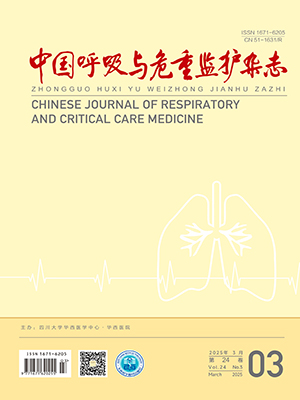Objective To explore the value of CT obstruction index ( CTI) on CT pulmonary angiography( CTPA) in estimating the severity of acute pulmonary embolism. Methods 27 patients with pulmonary embolism were retrospectively studied. Pulmonary embolism was diagnosed by CTPA. The correlations between CTI and arterial blood gas and shock index ( SI) were assessed by Spearman rank correlation analysis. Blood gas values and SI were comparatively evaluated belowand above different CTI cutoff
values( 30% , 40% , 50% , and 60% , respectively) . Results A significant correlation was found between CTI and PaO2 ( r = - 0. 416, P =0. 031) , and also between CTI and P( A-a) O2 ( r =0. 468, P =0. 014) . PaO2 ( P =0. 027) and P( A-a) O2 ( P = 0. 034) were significantly different between pulmonary embolism patients above and below the CTI 60% cutoff value( P lt;0. 05) . Conclusions CTI is an effective index to evaluate the severity of pulmonary embolism. CTI gt;60% might be an indicator of higher severity.
Citation: YU Jing,GUO Xuejun.. CT Obstruction Index to Quantify Arterial Obstruction in Pulmonary Embolism. Chinese Journal of Respiratory and Critical Care Medicine, 2010, 9(4): 401-403. doi: Copy
Copyright © the editorial department of Chinese Journal of Respiratory and Critical Care Medicine of West China Medical Publisher. All rights reserved




